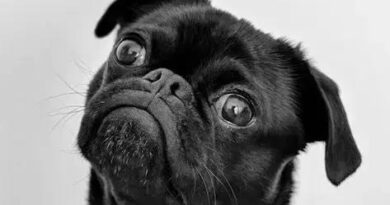What is Puppy Mischief
What is Puppy Mischief?
Puppy mischief refers to the playful and often mischievous behavior exhibited by young dogs. This behavior can include a variety of actions, such as chewing on furniture, digging in the garden, or stealing socks. Understanding what constitutes puppy mischief is essential for pet owners who want to ensure their furry friends are well-behaved and happy.
Common Types of Puppy Mischief
There are several common types of puppy mischief that owners may encounter. These include destructive chewing, where puppies gnaw on household items; excessive barking, which can be a sign of boredom or anxiety; and jumping on furniture, which can lead to accidents. Recognizing these behaviors early can help owners address them effectively.
Why Do Puppies Engage in Mischief?
Puppies engage in mischief for various reasons, primarily due to their natural curiosity and energy levels. They explore their environment through play and may not yet understand the boundaries set by their owners. Additionally, puppies often misbehave when they are bored or lack sufficient physical and mental stimulation.
How to Manage Puppy Mischief
Managing puppy mischief involves a combination of training, supervision, and providing appropriate outlets for energy. Owners should establish clear rules and boundaries while also offering plenty of toys and activities to keep their puppies engaged. Positive reinforcement techniques can be effective in encouraging good behavior.
Training Techniques for Mischievous Puppies
Training techniques such as clicker training, obedience commands, and socialization can help curb mischievous behaviors. Consistency is key; using the same commands and rewards will help puppies learn what is expected of them. Socializing puppies with other dogs and people can also reduce anxiety and mischief.
The Importance of Exercise
Regular exercise is crucial for managing puppy mischief. A well-exercised puppy is less likely to engage in destructive behaviors due to pent-up energy. Daily walks, playtime in the yard, and interactive games can help satisfy a puppy’s physical and mental needs, leading to a calmer demeanor.
Creating a Safe Environment
Creating a safe environment is essential for preventing puppy mischief. This can involve puppy-proofing the home by removing hazardous items, securing trash cans, and providing designated areas for play. A safe space allows puppies to explore without getting into trouble or harming themselves.
Understanding Puppy Development Stages
Understanding the different stages of puppy development can help owners anticipate and manage mischief. Puppies go through various phases, including teething and adolescence, which can influence their behavior. Being aware of these stages allows owners to adjust their training and expectations accordingly.
When to Seek Professional Help
If a puppy’s mischief becomes overwhelming or unmanageable, it may be time to seek professional help. A certified dog trainer or behaviorist can provide tailored advice and strategies to address specific issues. Early intervention can prevent more serious behavioral problems from developing later on.
Conclusion: Embracing the Mischief
While puppy mischief can be challenging, it is also a natural part of a puppy’s growth and development. Embracing this phase with patience and understanding can lead to a well-adjusted and happy adult dog. By implementing effective training and providing ample stimulation, owners can enjoy the playful antics of their puppies while minimizing potential issues.




